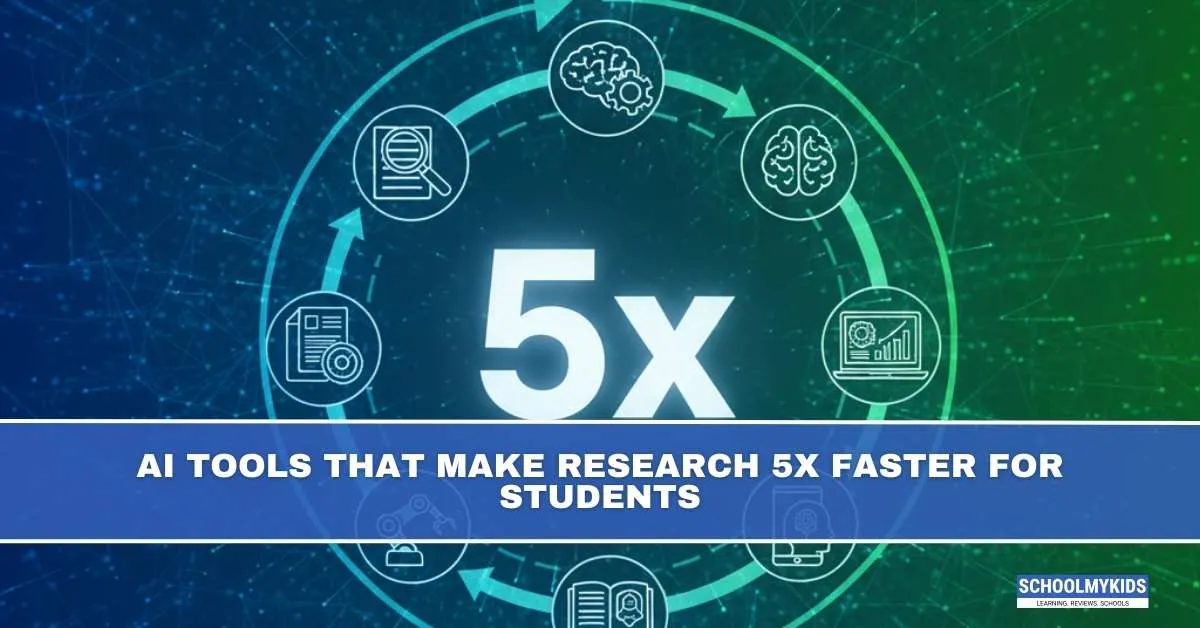Research has traditionally been one of the most time-consuming aspects of academic life. Students often spend countless hours sifting through databases, reading papers, and organizing information. However, artificial intelligence has revolutionized this process, introducing powerful tools that can dramatically accelerate research workflows. Here are the most effective AI tools that can make your research process five times faster.
Research Discovery and Literature Review
ChatPDF
This specialized AI tool transforms how students interact with academic papers. Simply upload any PDF document—whether it's a research paper, textbook chapter, or academic journal—and ChatPDF analyzes the content instantly. You can ask specific questions about the material and receive precise answers drawn directly from the document. This eliminates the need to manually scan through lengthy papers to find relevant information, making academic research significantly more efficient.
Google Scholar with AI Enhancement
While Google Scholar has long been a staple for academic research, recent AI integrations have made it even more powerful. The platform now offers straightforward access to recent articles and scholarly literature with easy-to-identify tags for quick navigation. Students can quickly locate up-to-date information without getting lost in irrelevant search results.
Elicit
Elicit stands out as an AI research assistant that automates systematic reviews and data extraction. When you input a research question, it returns lists of relevant papers along with summaries of key findings. The tool uses natural language processing to extract and organize important data points, presenting them in a structured format that saves hours of manual review work.
Research Rabbit
This AI-powered tool helps students discover interconnected research through visual mapping of related papers. Instead of following citation trails manually, Research Rabbit creates networks of related studies, helping you identify gaps in the literature and find relevant sources you might have missed.
Content Analysis and Synthesis
NotebookLM
Google's NotebookLM has become a game-changer for students. Upload your course materials, notes, and research papers, and it provides clear, helpful overviews of complex content. The standout feature is its audio summary capability—it converts your uploaded content into an AI-generated podcast that helps with retention and understanding. With the free tier offering up to 100 notebooks and 50 sources per notebook, it's incredibly accessible for students.
Deep Research (ChatGPT)
OpenAI's Deep Research feature can find, analyze, and synthesize hundreds of online sources to create comprehensive reports on any subject in just minutes. While it requires careful fact-checking, it's excellent for building foundational knowledge on new topics or conducting preliminary research. Free ChatGPT users get 5 Deep Research tasks monthly, while paid plans offer more.
Consensus
This AI tool helps researchers understand the variety of scientific information on specific topics. Students can input questions like "What are the effects of social media on mental health?" and receive synthesized answers based on multiple research studies, complete with confidence levels and source citations.
Writing and Documentation
Grammarly
Beyond basic grammar checking, Grammarly's AI capabilities now include tone adjustment, clarity enhancement, and plagiarism detection. For students writing research papers, it acts as a 24/7 writing coach, helping refine drafts and ensure academic writing standards. The free version offers 300 documents or 150,000 words per month.
QuillBot
This AI paraphrasing tool helps students rephrase content while maintaining original meaning. It's particularly useful for avoiding accidental plagiarism and improving sentence structure in academic writing. The free version allows paraphrasing of 125 words at a time.
Paperpal
Designed specifically for academic writing, Paperpal provides real-time feedback on grammar, style, and structure for research papers. It offers suggestions for improving readability and impact, ensuring that academic work meets publication standards.
Data Analysis and Visualization
Julius
Julius specializes in statistical analysis and data visualization for research. Unlike traditional tools like R or SPSS, Julius offers a more intuitive interface for both new and experienced researchers. Students can analyze datasets, create visualizations, and receive guidance on interpreting results without extensive programming knowledge.
Bit AI
This collaboration platform helps students organize and manage research content effectively. It provides tools for collaborative writing, content integration, and data visualization, making it easier to create comprehensive research documents and work with study groups.
Citation and Reference Management
Scite
This AI tool helps students understand how research papers have been cited by providing context around citations. It shows whether citations support, contradict, or simply mention the work, helping students better understand the impact and reliability of their sources.
Scinapse
An advanced academic search engine that uses AI to provide comprehensive search capabilities with enhanced filtering and sorting options. It ranks research papers based on relevance and impact, helping students quickly identify high-quality studies in their field.
Specialized Research Tools
Doctrina AI
This educational AI tool summarizes notes and enhances learning through AI algorithms. It can create quizzes from your materials and provide interactive learning experiences that reinforce research findings.
Paperguide
A comprehensive platform for collecting, understanding, and producing research papers. Its AI Search feature saves time by automatically searching through academic repositories, while the AI Research Assistant helps synthesize collected literature into coherent summaries.
Best Practices for Using AI Research Tools
Verify Information: Always cross-reference AI-generated summaries with original sources. AI tools can sometimes misinterpret complex academic content.
Combine Multiple Tools: Use different AI tools for different aspects of your research. For example, use Elicit for discovery, NotebookLM for synthesis, and Grammarly for writing.
Follow Academic Guidelines: Ensure your use of AI tools complies with your institution's academic integrity policies. Many schools have specific guidelines about AI assistance in research.
Maintain Critical Thinking: While AI tools can accelerate research, they shouldn't replace critical analysis and original thinking. Use them to enhance, not replace, your intellectual engagement with the material.
The 5x Speed Advantage
These AI tools collectively create a multiplicative effect on research efficiency:
- Discovery phase: AI tools can scan thousands of papers in minutes instead of hours
- Analysis phase: Automated summarization and extraction reduce reading time by 70-80%
- Synthesis phase: AI assistants help organize and connect ideas faster than manual methods
- Writing phase: Real-time feedback and suggestions streamline the drafting process
- Revision phase: AI editing tools catch errors and improve clarity instantly
By strategically combining these tools, students can transform research from a weeks-long process into a matter of days, freeing up time for deeper analysis, creative thinking, and original contributions to their field of study.
The key to maximizing these tools' potential lies in understanding their strengths and limitations, using them ethically, and maintaining the critical thinking skills that make research meaningful. With proper implementation, these AI tools don't just make research faster—they make it more thorough, accurate, and insightful.









Be the first one to comment on this story.